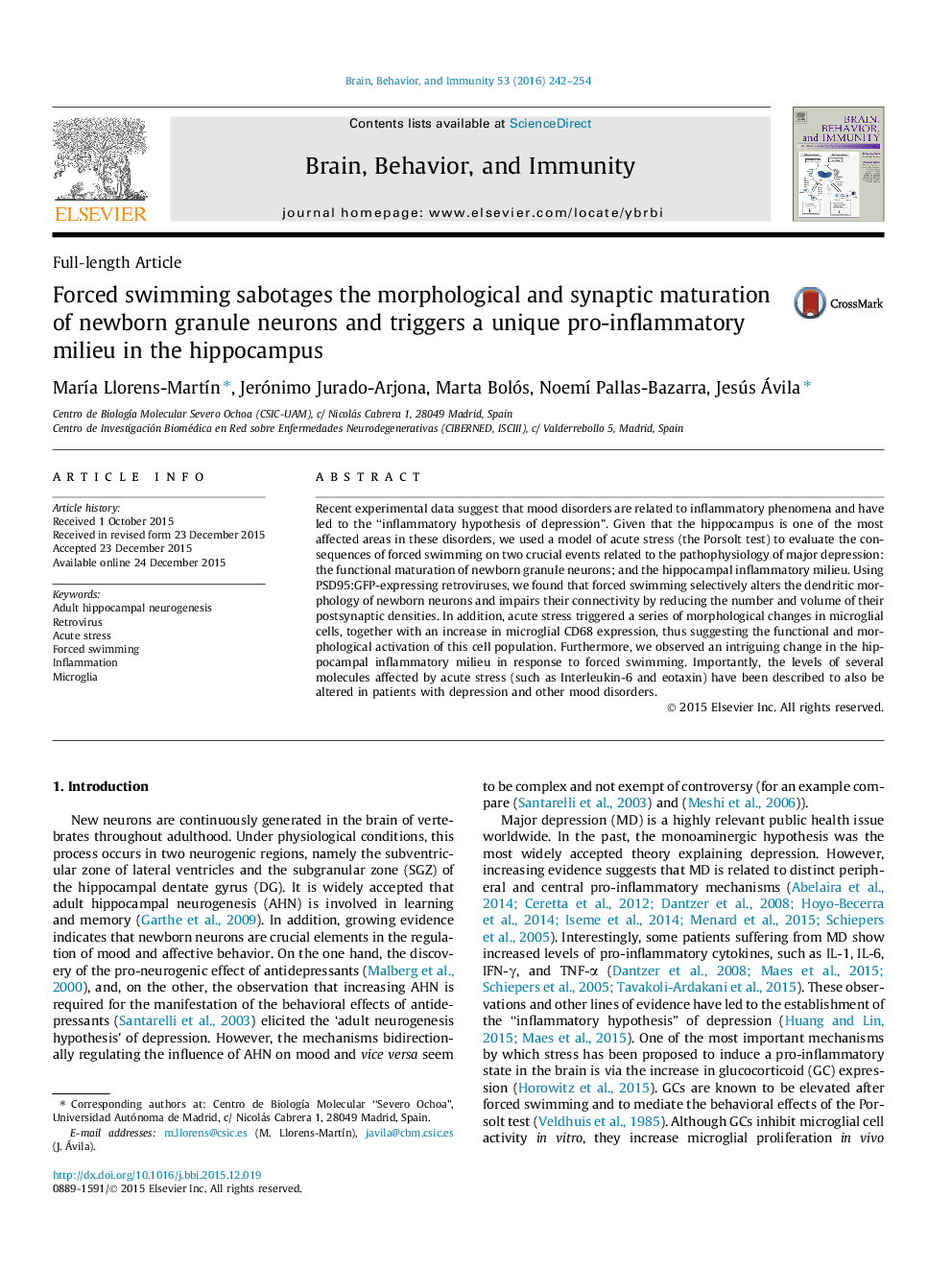| Article ID | Journal | Published Year | Pages | File Type |
|---|---|---|---|---|
| 922095 | Brain, Behavior, and Immunity | 2016 | 13 Pages |
•Forced swimming impedes morphological and functional maturation of newborn neurons.•Forced swimming induces the functional and morphological activation of microglia.•Forced swimming triggers an intriguing shift in the hippocampal inflammatory milieu.•Molecules altered by the Porsolt test are dysregulated in patients with depression.
Recent experimental data suggest that mood disorders are related to inflammatory phenomena and have led to the “inflammatory hypothesis of depression”. Given that the hippocampus is one of the most affected areas in these disorders, we used a model of acute stress (the Porsolt test) to evaluate the consequences of forced swimming on two crucial events related to the pathophysiology of major depression: the functional maturation of newborn granule neurons; and the hippocampal inflammatory milieu. Using PSD95:GFP-expressing retroviruses, we found that forced swimming selectively alters the dendritic morphology of newborn neurons and impairs their connectivity by reducing the number and volume of their postsynaptic densities. In addition, acute stress triggered a series of morphological changes in microglial cells, together with an increase in microglial CD68 expression, thus suggesting the functional and morphological activation of this cell population. Furthermore, we observed an intriguing change in the hippocampal inflammatory milieu in response to forced swimming. Importantly, the levels of several molecules affected by acute stress (such as Interleukin-6 and eotaxin) have been described to also be altered in patients with depression and other mood disorders.
